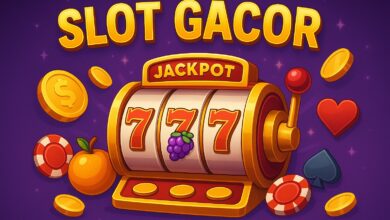Streaming Fatigue: How Too Many Options Are Killing Our Ability to Pick a Movie

You sit down to watch something. You open the app. You scroll for a few minutes, maybe more. A trailer here, a description there. Before you know it, half an hour’s gone, and you’re still undecided. This is the reality of streaming fatigue — too many options, not enough clarity. It’s the same kind of mental overload you might get while browsing an endless online store or even picking a game like crazy balls evolution when you’re already tired of making choices.
The Paradox of Choice
The idea seems simple: more options mean more freedom. But in practice, it can backfire. When the list of possible movies feels infinite, the brain starts weighing every possible outcome. Is this the best choice? What if I start it and hate it? Could there be something better just a few scrolls down?
Instead of excitement, you get hesitation. Instead of picking quickly, you start comparing and second-guessing. What was meant to be relaxing turns into a low-level stress exercise.
Decision Fatigue in Action
This isn’t just a movie-night problem. Psychologists have studied decision fatigue — the way our ability to make good choices wears down over time. Every small decision takes a little mental energy. By the time you’re deciding on entertainment, you might have already made dozens or even hundreds of small choices that day.
That’s part of why you might default to rewatching something you’ve seen before. It’s not that new movies aren’t appealing — it’s that your brain is too tired to commit to one.
Endless Scrolling as a Habit
Streaming platforms are built to keep you browsing. Autoplay previews, personalized suggestions, endless categories — all of it pulls you deeper into the menu instead of the movie. It’s similar to how social media feeds work. There’s no clear endpoint, so you just keep going.
The trouble is, this browsing becomes its own form of entertainment. You get the small dopamine hits of discovery without the bigger payoff of actually watching something. In the end, you might choose nothing at all.
When Too Much Becomes Too Little
Ironically, having more movies at your fingertips can make it feel like there’s nothing to watch. That’s because abundance changes the way you see each option. If you only had three movies to choose from, you’d likely settle on one quickly. But when there are hundreds, each one feels less special.
This can lead to a cycle where you keep skipping over good choices because they don’t seem “perfect” in the moment. The pursuit of the ideal pick ends up making you miss out on perfectly good ones.
The Rise of “Default Watching”
Because of this choice overload, many people fall back on what they know — a favorite series, a comfort movie, or a familiar genre. It’s not necessarily a bad thing. Familiarity can be relaxing. But it also means that the huge library of options often goes untouched.
Over time, this can make the idea of trying something new feel like work. The unknown requires more energy, so you stick with the safe bet.
How to Break the Cycle
One way to fight streaming fatigue is to set limits before you start browsing. Decide in advance: I’ll pick something in five minutes, or I’ll choose from a single category. Another trick is to make a small watchlist during the week, so you’re not starting from zero when you sit down to watch.
Some people even rotate “curators” within a household — one person picks for everyone that night, no debates. It takes the decision pressure off and can lead to interesting discoveries.
Accepting “Good Enough”
Perfection is the enemy of enjoyment when it comes to streaming. The truth is, you don’t have to find the absolute best movie every time. Picking something that’s simply “good enough” can actually make for a better night, because you spend more time watching and less time agonizing.
This mindset shift — from “What’s the best possible choice?” to “What’s a choice I can enjoy right now?” — can be surprisingly freeing.
The Bigger Picture
Streaming fatigue is a small example of a much larger issue in modern life: choice overload. From shopping to dining to entertainment, we’ve reached a point where the sheer number of options can work against us.
Movies used to be rare events — you went to the theater, or you caught what was on TV. Now, they’re always there, waiting, which changes how we value them. The challenge is finding ways to enjoy abundance without letting it paralyze us.
If you’ve ever spent more time browsing than watching, you’ve felt the effects of streaming fatigue firsthand. The solution might not be fewer options, but fewer decisions in the moment. After all, the point isn’t to pick the perfect movie — it’s to actually watch one.





